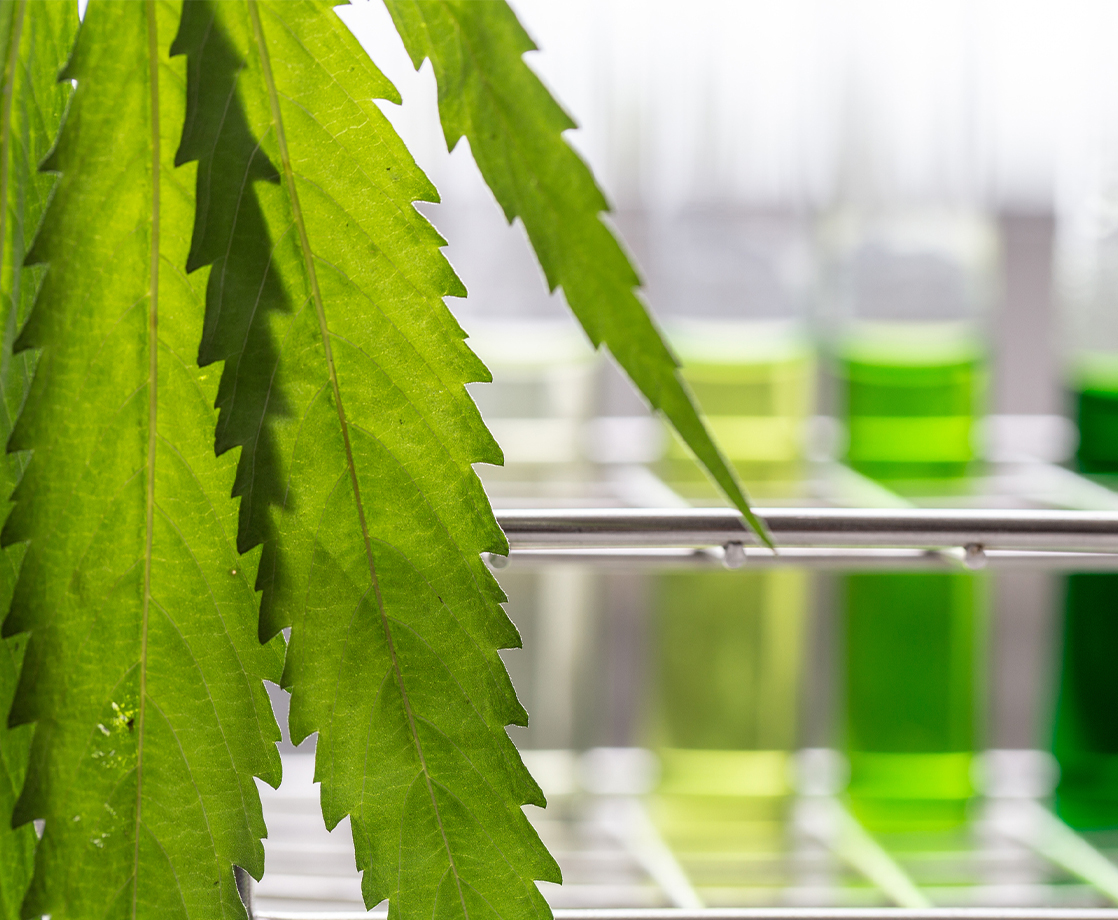A newly discovered cannabinoid may completely change our understanding of cannabis. And the coolest part? It’s a stronger version of weed’s most famous compound: THC.
Earlier this week, Italian researchers published their findings in the latest edition of Nature. After analyzing a medical marijuana strain grown exclusively by Italy’s military, dubbed FM2, the researchers found unusual chemical signatures, which eventually led to identifying and isolating the previously unknown cannabinoid, called tetrahydrocannabiphorol or THCP.
THCP is nearly identical to THC — the chemical in cannabis that causes intoxication — with the exception of a couple extra carbon atoms on the molecule’s tail end. Those extra carbon atoms are critical for affecting THCP’s ability to bind to the body’s CB1 and CB2 receptors, the cell receptors that directly interact with weed compounds to help us heal or get us high.
According to the study, THCP binds much stronger to the CB1 and CB2 receptors than THC does. In fact, THCP binds over 30 times stronger to the CB1 receptor — the receptor that triggers weed’s high — than THC.
When THCP was given to mice, the researchers found that just half the standard THC dose, or 5mg/kg THCP, was enough to intoxicate the rodents. However, THCP has not yet been administered to human subjects, so whether it actually gets people more lit remains untested.
So, what does this discovery mean for our understanding of cannabis and its medical applications?
“[It] is reasonable to suppose that other cannabis varieties may contain even higher percentages of Δ9-THCP,” the researchers wrote in the study. “It is also important to point out that there exists an astonishing variability of subject response to a cannabis-based therapy even with an equal Δ9-THC dose.”
In other words, people may experience wildly different effects from weed because of other cannabinoids, terpenes, or flavonoids that we still don’t know about. After all, we’ve likely been smoking/eating/vaping/dabbing THCP for years without ever realizing it.
What other powerful compounds are lurking inside of cannabis that science hasn’t yet identified? And will these new discoveries completely upend our current understanding of cannabis science? Time will tell, and we’ll continue to cover new updates as they reveal themselves.
Follow Randy Robinson on Twitter











